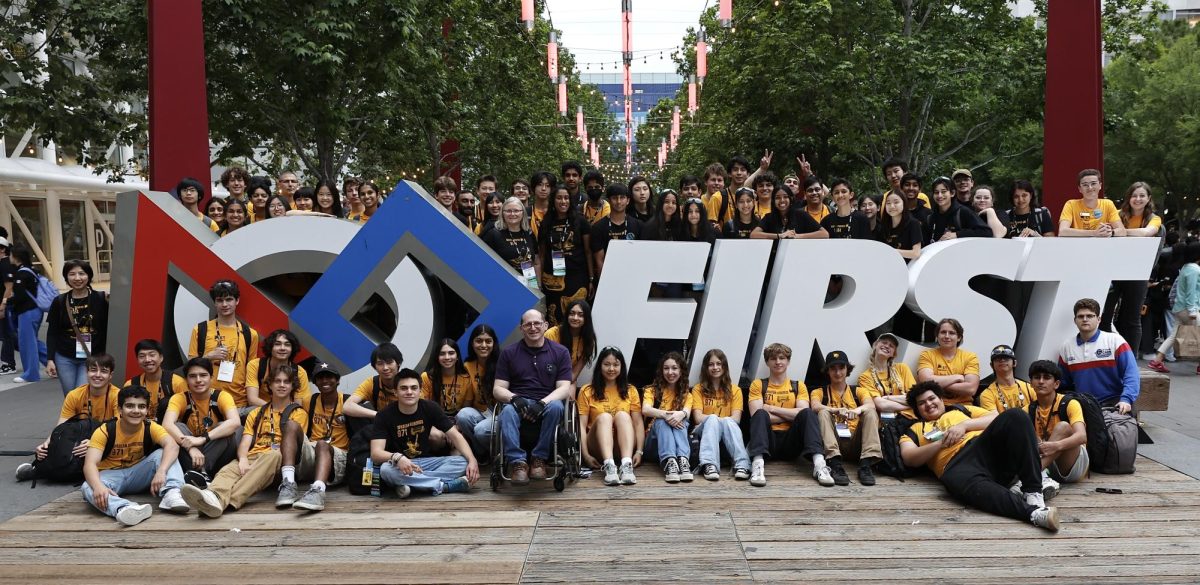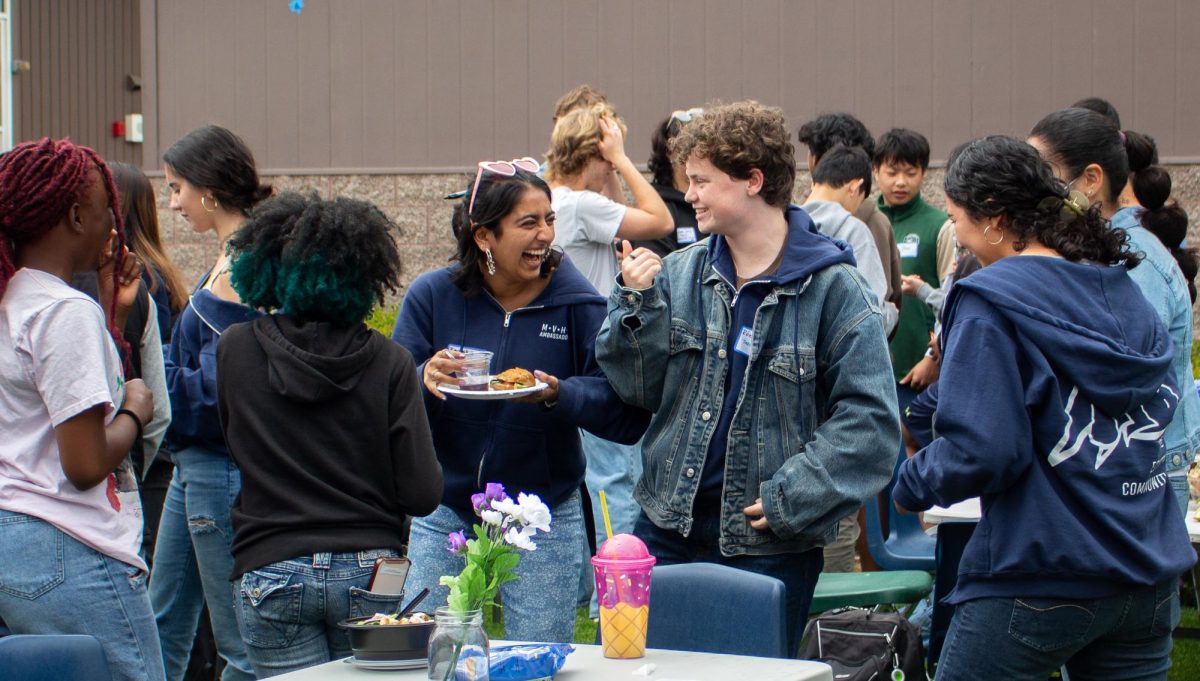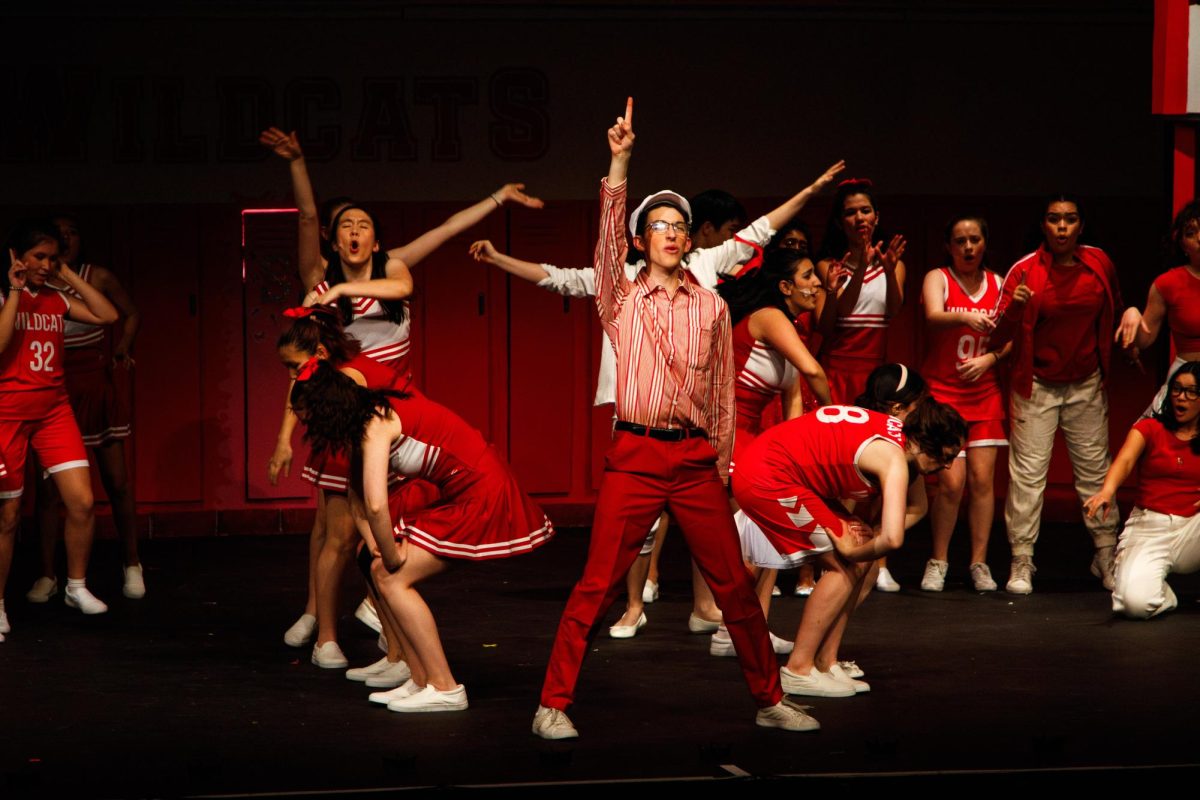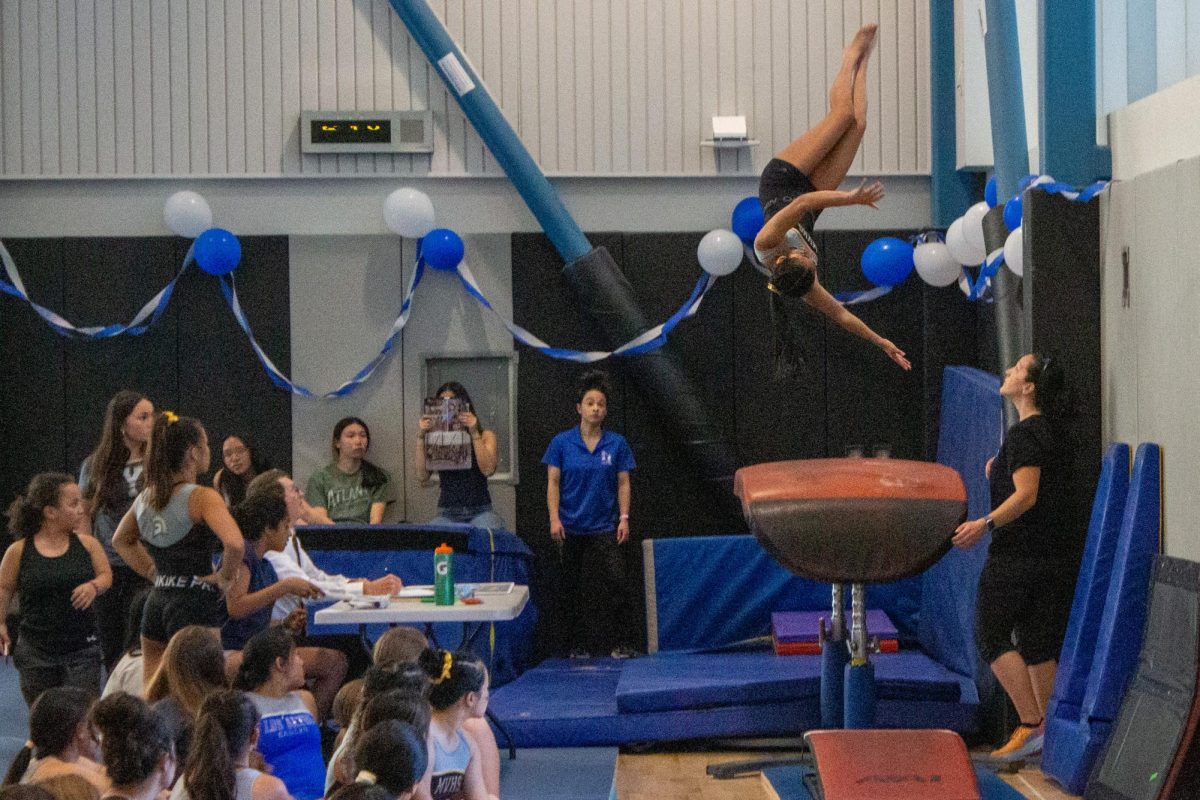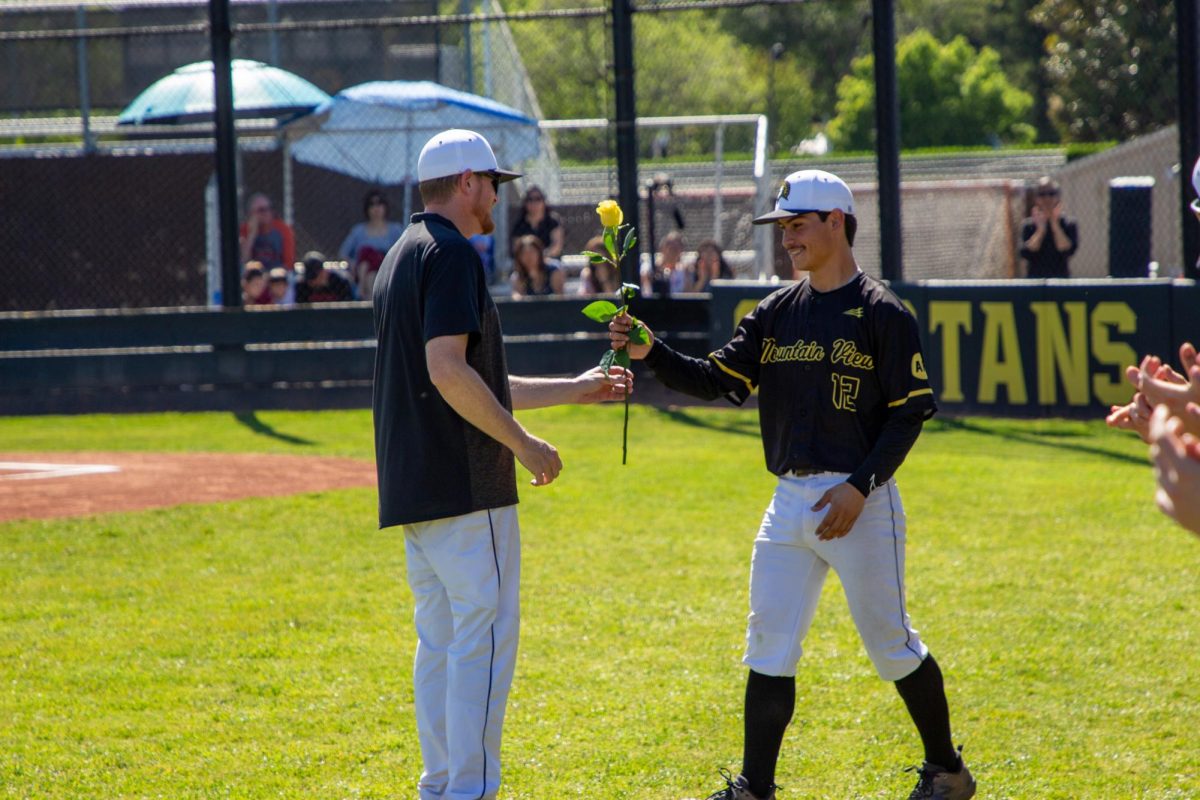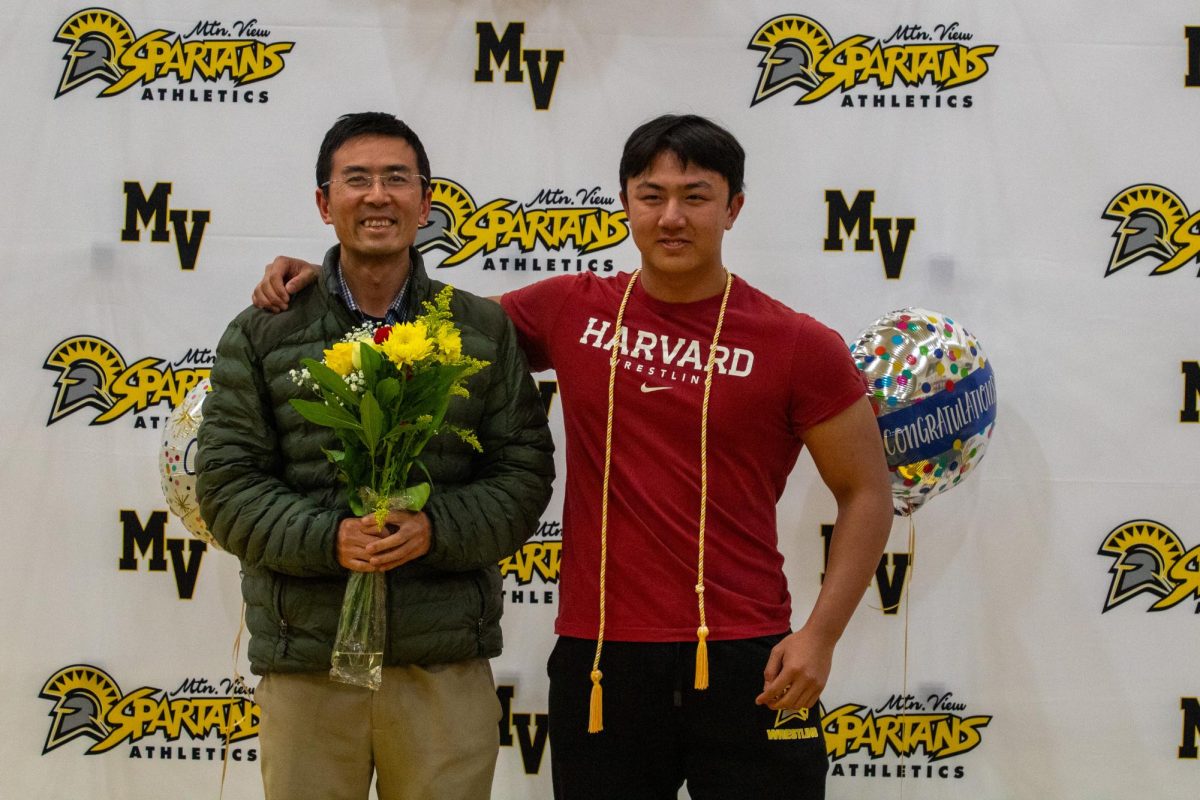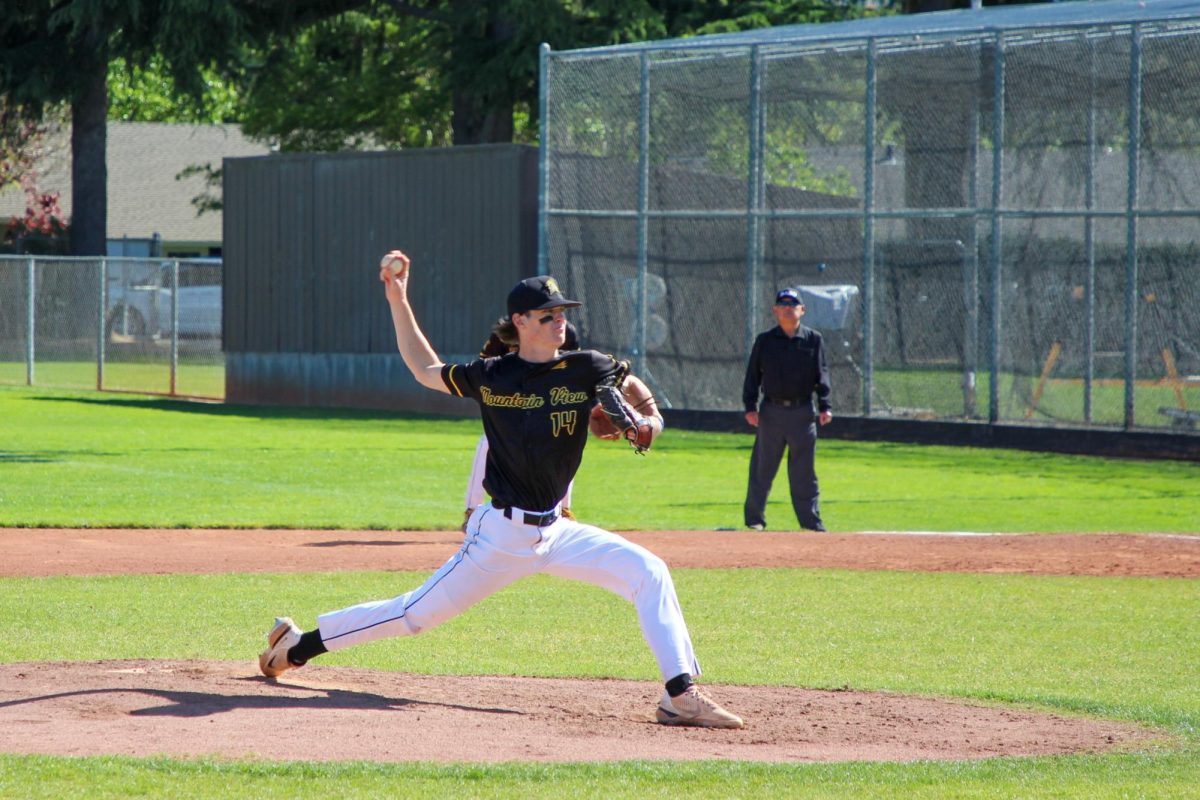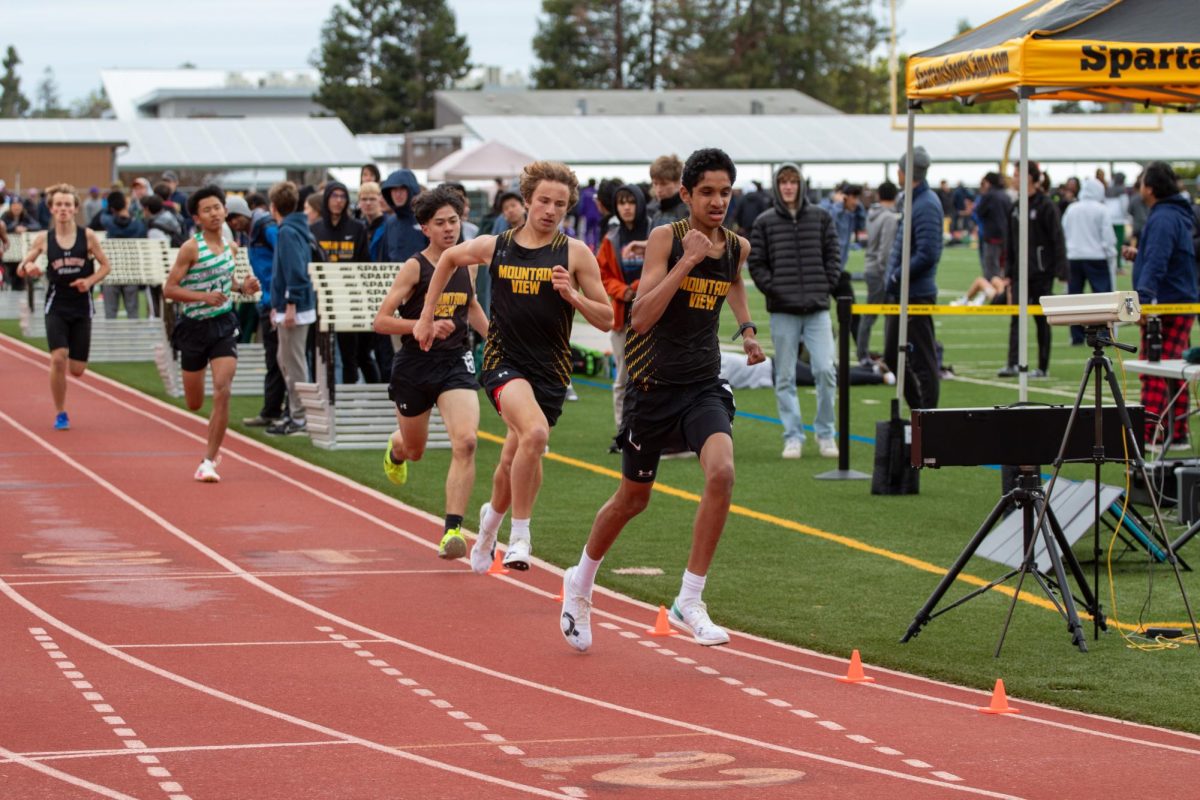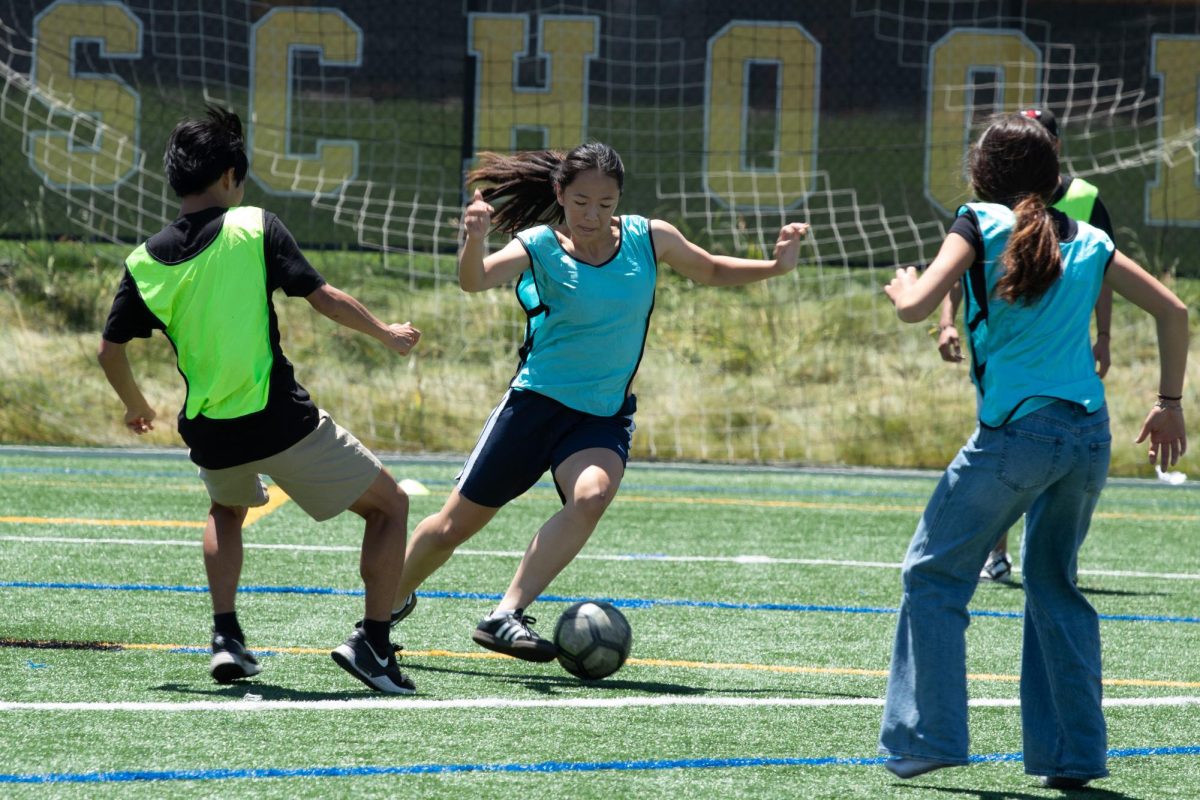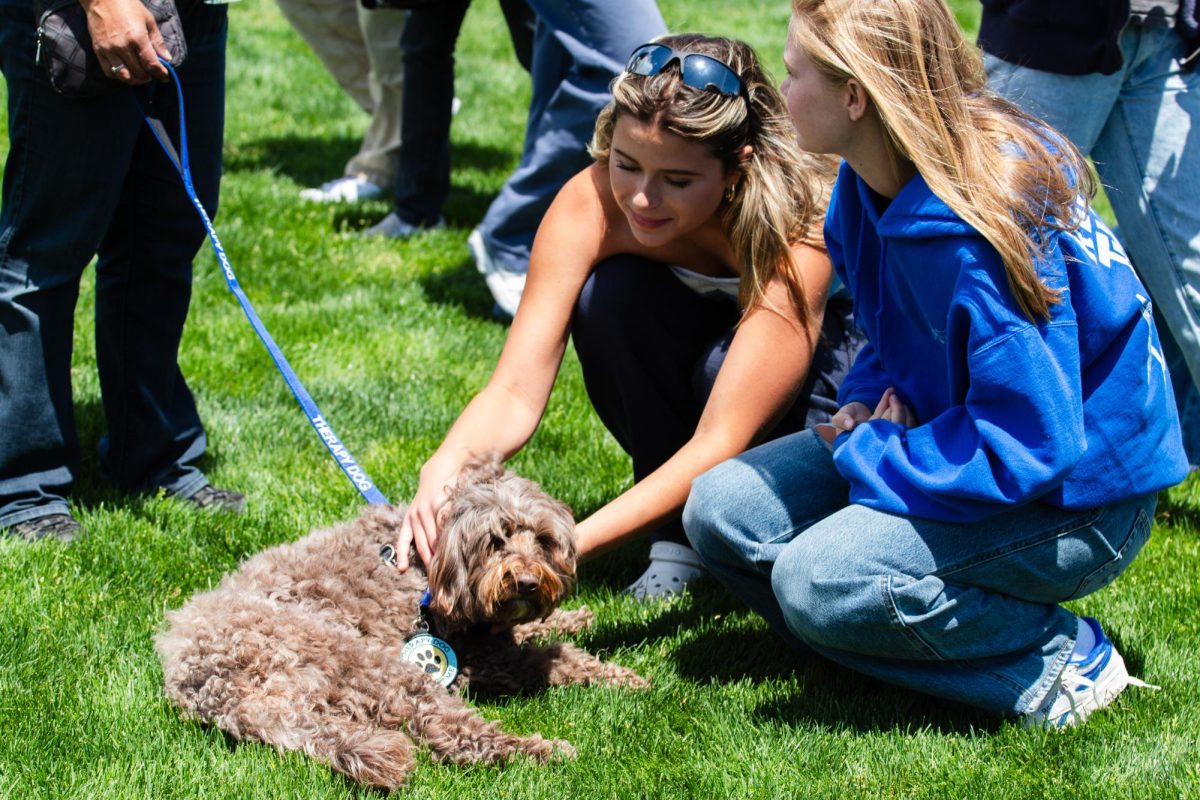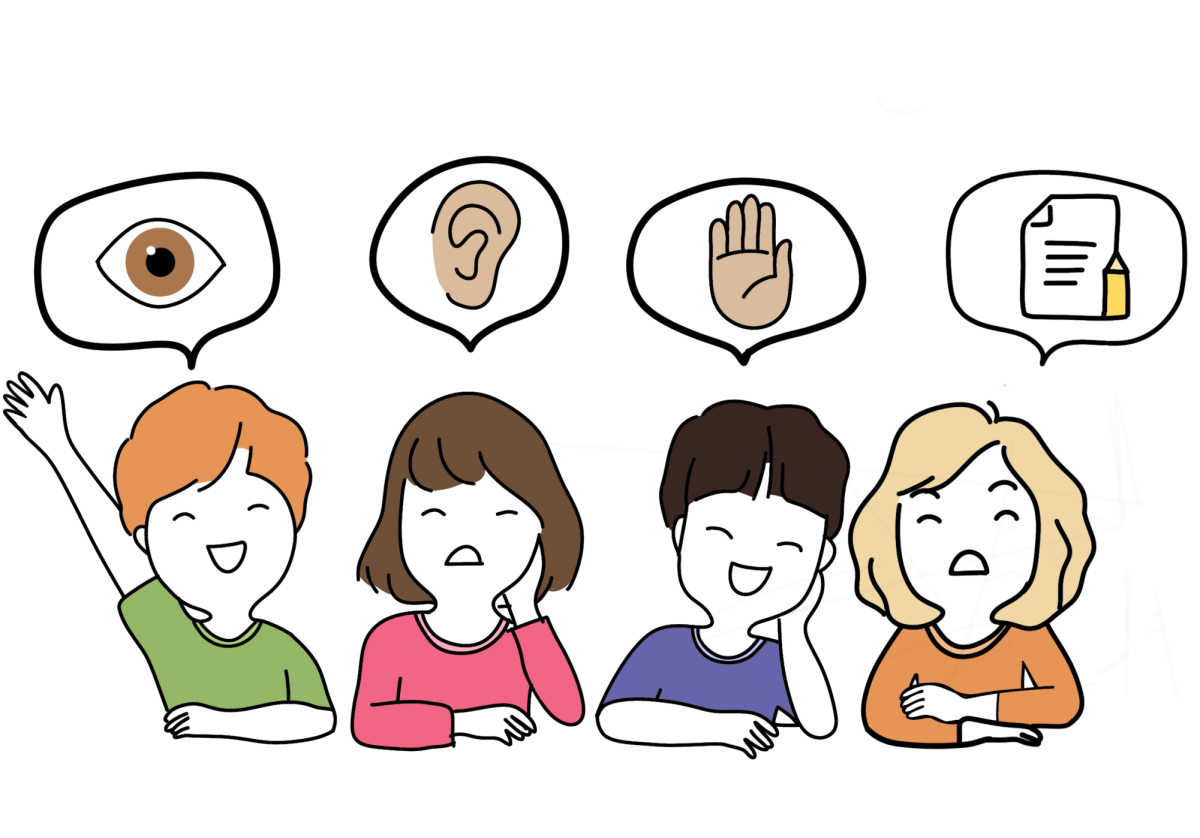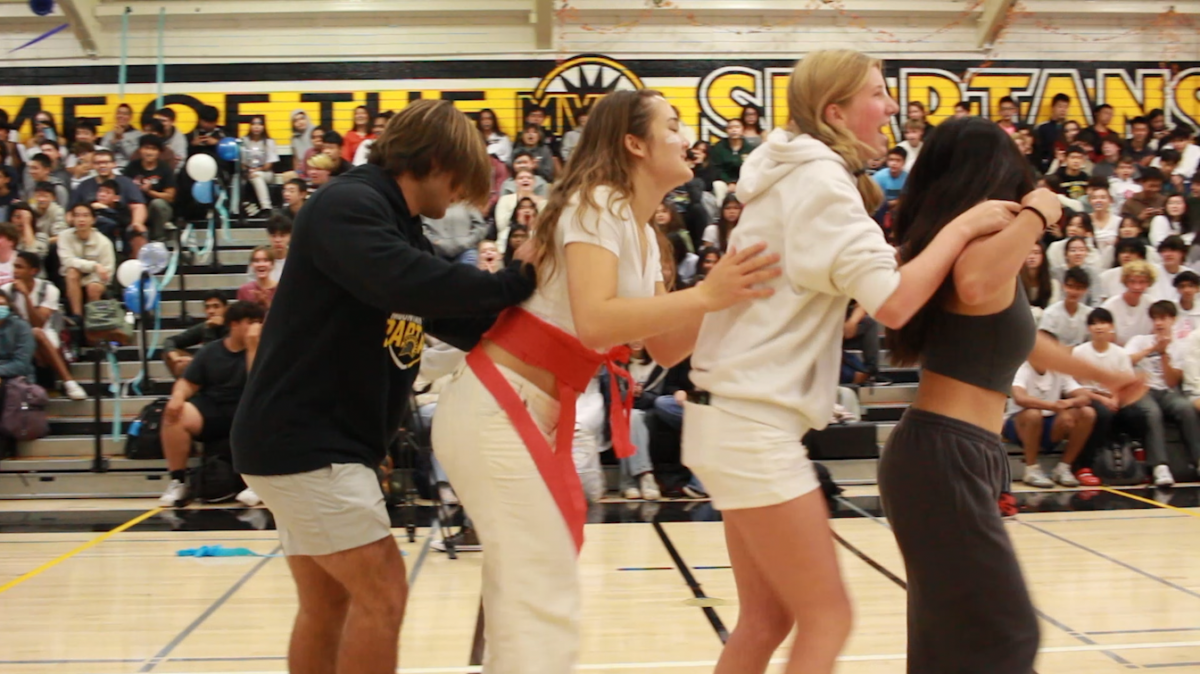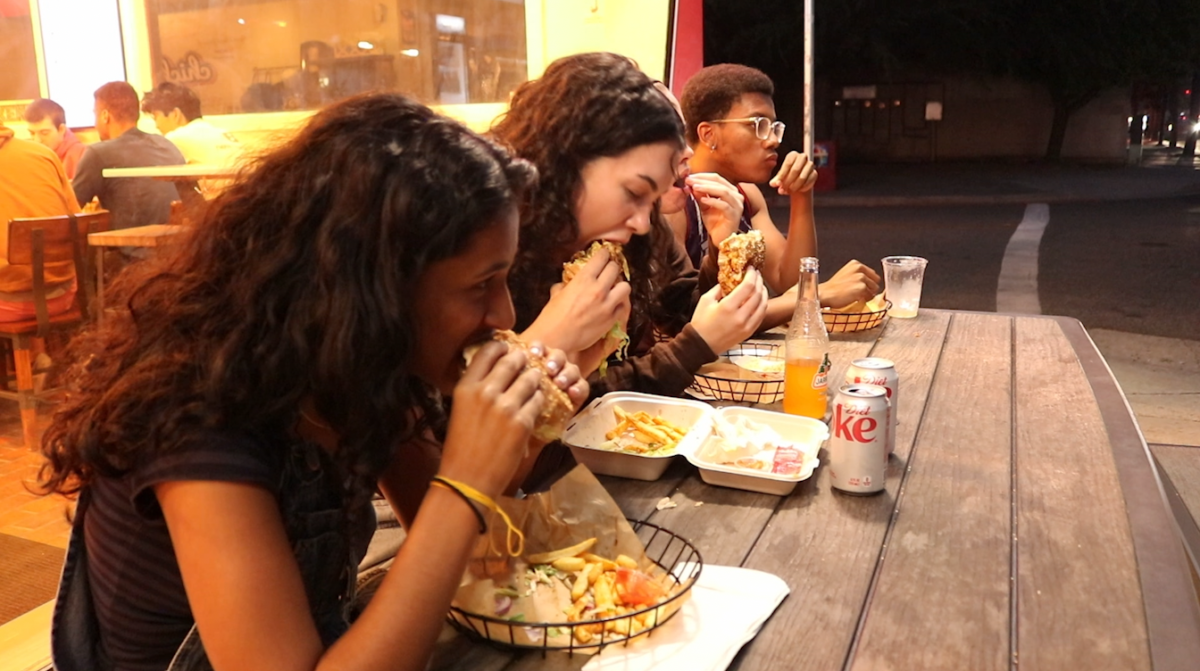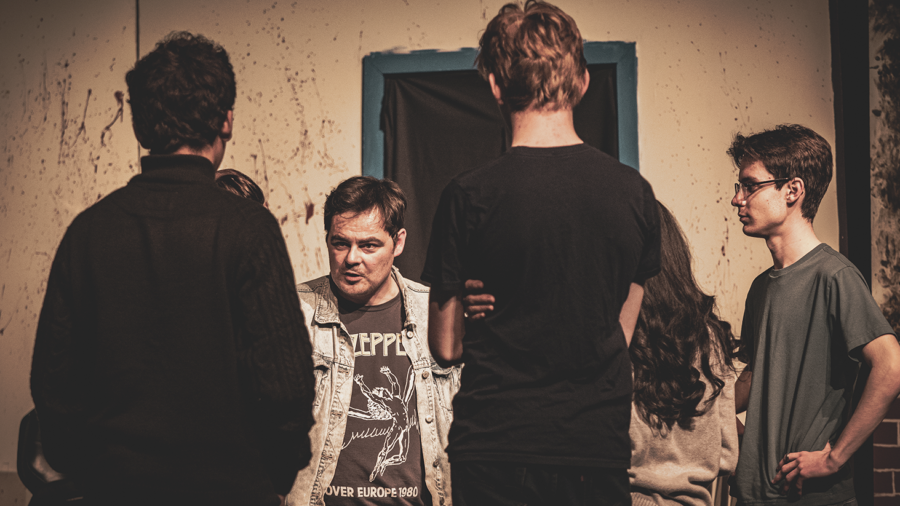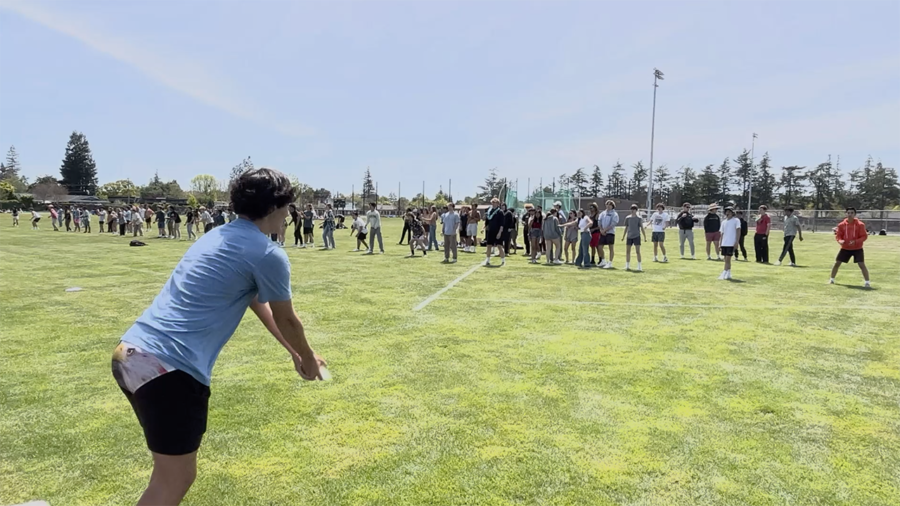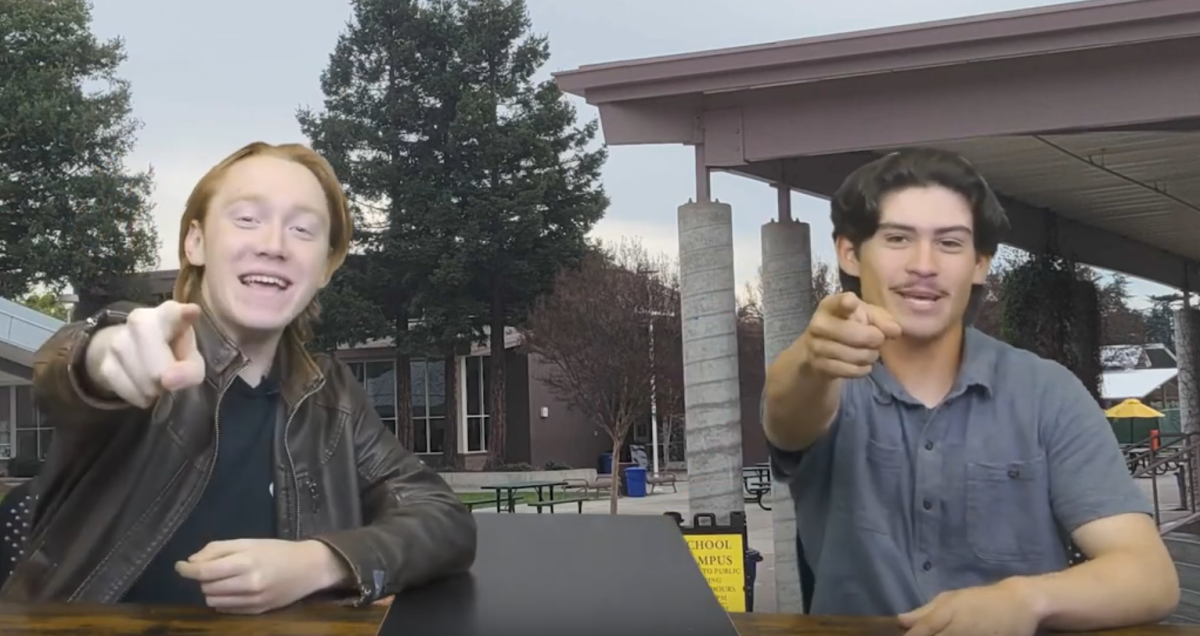The following is a short story written by Mountain View High School sophomore Karen Xia, who was announced to have won the National Silver Medal for Scholastic Art and Writing on March 18. Xia will be attending the award ceremony at Carnegie Hall in New York City on June 11.
The Prendergasts
By Karen Xia
I have been assigned to watch the Prendergasts, the family in the tree outside the apartment complex where I work and live. The brick building, surrounded by large lawns and rock gardens and high fences, sits in the middle of a dry patch of desert, where the sycamore limbs hold leaves only at their ends. My apartment is typically full of bustling white-coated people, running about with clipboards and riding up and down the elevator. Working hours are long and tiring, all days of the week, for as long as I can manage. I usually endeavor to work near the small window in the supplies closet, where I have an optimal view of the tree. The notebooks from my observations have accumulated into large piles inside the closet. I have other errands to run throughout the day, but Observer is my primary occupation. The flood of my work fills the room and makes me overwhelmed once in a while, as if I’ve happened upon some root of mankind that will bury me alive in cleaning supplies and hypotheses.
I have been assigned to document the Prendergast’s lives for a sort of psychological analysis, but the greatest hindrance is my inability to speak with the family in the tree. The tree in question is about four stories high, with branches like broken limbs, bent and twisting and thinning at the ends. I can hear their dialogue, though I am unable to shout back through the barred window. The owner and the inhabitants of my apartment building think strangely of my attempts at communication with the family, and I must not risk complaints if I am to stay on the job. In some aspects it is better this way, however, as verbal language may disrupt my study.
Around a year ago, when I first moved into the apartment and discovered the family living in the large tree, I deemed their location unfit. It isn’t that the family itself was especially different or peculiar; it has its kitchen-cupboard secrets and closed doors as most families do.
“A tree,” I said to a woman once sitting next to me in the common room, “is not the proper location to raise one’s children.” She wore a long white gown down to her knees, spotted with blue and brown circles, and her face appeared somewhat strange, with one eye significantly smaller than the other, immobile and slanting downwards.
“It’s a test, I’m sure.” She looked somewhere behind my head. “We have so many of them here. It might be a new kind that they’ve just implemented.” She stood and walked away, pricking around with a metal rod as if she were an ant with flickering antennae. I didn’t manage to catch her name, though it may have been something like Ms. Eberhart; it didn’t matter because she left the next day. Few people stay in the apartment for an extended period of time; most leave in a year or two.
My boss is a short fat middle-aged woman named Ms. Trump who has been sitting at the front desk of the apartment for fourteen years, “Long enough to know the answers to questions you haven’t asked,” she reminds anyone who walks past. It’s nearly painful to look at her face, even if it only happens to appear within my peripheral vision, purple eye shadow and dark reddish-brown lipstick radiating a sort of ugliness that shines like street lamps on a path in the woods. Her brown hair is colored in a way so that you can’t tell whether the highlights are the original hair or the dye, and in more than one situation I have become so angry at her instructions that I have wished to tear her hair out, not only as a result of frustration, but also to rescue our eyes from visual vexation. To exacerbate my resentment towards her, Ms. Trump doesn’t believe that Observer is a sufficient position, and she often pulls me away from the window to clean a number of apartments as if I were a housekeeper.
“Now don’t go sitting in there,” she says, “Come with me. There are rooms that need cleaning.” This is especially frustrating as the rooms are often white and have little furniture, so every stain appears as if it were ashamed. Even though I don’t get along very well with Ms. Trump, I wouldn’t dare anger her and risk losing my job.
The tree family consists of two parents and three children: a daughter, around eleven, and two sons, one of whom seems to be about seventeen years of age and the other six. Only the parents are permitted to leave the tree, and in multiple instances I have witnessed severe chastisement for any child attempting to climb past nearly three quarters of the way to the ground. The small boy, Coby, is especially mischievous and inquisitive, and even in situations of which his parents are ignorant, I often catch him hanging on a branch much lower than permitted and craning his neck to peer at the ground below, as if confined behind the branches of regret and paroxysm.
In many ways, Coby reminds me of my little brother, both speaking with the same tone of voice one would use when forced to recite multiplication tables or Spanish verb conjugations. In our youth, my brother and I would attempt to lose ourselves among the orchards and barns on our family’s hundred acres in Washington state, though we never wandered beyond the old sheds with rusty relics that neither of us touched for fear of spiders. It was a rather trivial pastime, during which I would run ahead to pick the sweetest blackberries so he wouldn’t eat them first. To spite me, he hid in the trees and waited for my arrival so that he could jump down and scare me. He had an ardent passion for climbing trees, and would refuse to come home for dinner, sitting in the branches with arms crossed and chin tilted up until my mother yelled, “You can’t live in a tree. Now get down and come inside!” My brother would always yell back, “When I grow up, I’m going to live in a tree with my family and my children!” In one particularly frightful situation, my brother climbed too high, and before I could yell for him to come down, he fell and scraped his arm pretty bad. I might have gone insane if he’d died.
Almost every morning, within five minutes of a quarter past seven, Mrs. and Mr. Prendergast arise from a makeshift leaf-branch bed. Mr. Prendergast looks as if he could be Ms. Trump’s brother, radiating the same sort of hideousness with a distended neck that appears to consist of solely folds of skin and eyebrows that crease downwards like two caterpillars kissing. His limbs are extraordinarily short, perhaps because of lack of use, and his overall demeanor is like that of a panda, though not in an endearing way. Mrs. Prendergast could have been beautiful when she was younger, but she now has cavernous wrinkles painted into her face and motherhood sunken under her eyes. She, unlike her spouse, displays an abnormally long neck, and cries so frequently that her eyebrows have developed an upwards angle. Both Mrs. Prendergast’s appearance and manner give the impression of being discontent with humanity, and it seems as though the tree connects her with her primordial past. After breakfast, the husband and wife climb ineptly, despite having done so for the past year, down the tree and depart in separate directions while the children begin to wake.
The middle child, a girl named Carlotta, is my least favorite of the three children. She and her younger brother, Coby, often have disagreements about trivial things, such as what to listen to on the radio and whether their parents should bring home cornflakes or rice cereal. Whenever Carlotta happens to lose the argument, she reaches out and dangles Coby by his ankles until his face turns the same shade of purple as Ms. Trump’s eye shadow, threatening to drop him until he screams his consent. In these instances I find it extremely difficult not to break through the window and yell a garbled string of expletives, though I am never able to as Ms. Trump would surely dismiss me. I fear that someday in the future, Carlotta’s grip will falter, and I will be responsible for informing the housekeepers about the mess of a body they must now tidy.
Elan, the eldest child, is relatively separate from any sibling disputes. Although I am not especially fond of anyone in the family, I find Elan the most agreeable, yet I still feel rather perturbed when I observe him. He resides somewhere near the top of the tree and rarely interacts with other family members, only stumbling down to the middle of the tree to eat meals or attend mandatory congregations. Following some inspection, I became aware of his numerous peculiarities, the most noticeable, at least of those pertaining to physical characteristics, being his arms. In both behavior and appearance, they look to be long ropes, limply swaying at his sides without comprehensible purpose, as if he doesn’t know how to use them. Elan’s posture doesn’t seem especially beneficial either, his back always hunched as if trying to hide some reprehensible family secret. His general conduct almost resembles that of an ape, though strangely he lacks the ability to climb about the tree safely. Most movements result in some scrape or laceration, and often I worry that he may fall along with his brother Coby.
After Elan received a particularly painful injury, I began to find the arboreal inhabitants rather disconcerting. While I had previously reconciled with the idea of raising a family in a tree, my uncertainties returned upon recognizing the many hazards of its location.
In recent observations, Carlotta and Coby have been unusually amicable towards each other, exultantly hurtling across the branches like a wildcat chasing an opossum. This has greatly decreased the agitation my inspection often causes. While I sweep fingernail clippings and tissues into the dustpan, the shouting makes me feel a sort of punctured satisfaction. Elan generally sits reading a book and not looking at anything, falling asleep whenever the leaves allow the sun through to his face and then lurching awake.
On cold winter days, the family huddles in a pitiful cluster as close to the ground as they can manage, the only circumstance in which Carlotta, Elan, and Coby are permitted in the lower branches of the tree. Ms. Trump declares, “You needn’t bother with anything but the housekeeping during much of the winter,” so a majority of my work as Observer is done during dreadful hours of the night. My keenness for the profession extends far beyond prescribed hours.
“Why it’s too chilly to be sitting there,” Ms. Trump asserts offhandedly when she catches me by the window on these sorts of days, and I throw all chance of writing a copiously precise report into the wastebasket along with torn pictures and used napkins. While at times Observer seems to be some elementary task for an adolescent in need of a trivial vocation, working for Ms. Trump is enough to make anyone tremble like an insect under a leather boot.
On the day of Coby’s seventh birthday, I begin to have a peculiarly strong desire to observe incessantly. It’s similar to how birds know when there’s a storm coming, a kind of animal’s premonition, though relevant only to the happenings of the tree family. Fortunately, Ms. Trump is ill and unable to detach herself from her seat, and I am uninterrupted in my devotion.
Coby and the rest of the family are celebrating in the tree, a dull sort of gathering that arises when one has no acquaintances. Elan and his parents play cards at one side of the tree, Elan disdainfully observing his brother and sister chasing each other through the branches, like half wild horses at dusk before the lions come out. At this point, I wouldn’t move from the window if Ms. Trump herself threatened to fire me; I lean forward, holding my breath as to avoid obscuring my view of the tree. Elan doesn’t move from his seat at the card table; on one of the higher branches, he sits with his parents in front of the pile of cards, trying to build a house-like structure with the deck, but the cards fall down, so they build them again in a continuous cycle of ending and beginning.
It is a rainy day, the tree and the sky boasting a somewhat enclosed quality, and this intrudes upon everyone–as if rain soaked through people and left puddles of water and secrets on the ground, for others to trod upon and dampen their socks in. The tree dampens to become about three shades darker, and the leaves shine like slicked back hair. As Carlotta chases Coby, Coby slides across the branch, for a moment a ballerina or ice skater or a gymnast, and then falls, grasping for something underneath with his left hand, but he can’t hold on, dropping like an overripe plum into the blackberry bush thirty feet below. Though I wish to focus on the situation and perhaps create a set of notes that may finally be satisfactory, the clock in the corner of my room begins to buzz, and then tick backwards, like clocks sometimes do when they break.
The windows and doors of the apartment are comprised of thick glass and cold metal bars, thus greatly complicating any wish to visit the outdoors, except for prescribed “walking hours” or “exercise periods.” Ms. Trump is extremely health conscious, as are many of the other workers. Though greatly aware that doing so may cost me my vocation, I manage to wrestle past the white-coated worker reading by the door, and dash outside.
“It’s not time for your afternoon walk! Where are you going?” Ms. Trump yells, and she runs out the door behind me, the most work her diminutive limbs have done in her fourteen years spent melting into the chair at the front desk.
I manage to run so fast that I reach the tree before Ms. Trump can notify anyone, and I launch myself up into the it, yelling, “Why didn’t you save him? It would’ve taken you two steps to grab his shirt before he fell!” Elan looks down at me with eyes like a crazed owl, though before I can reach him, I can feel Ms. Trump tugging at the back of my shirt. I try to escape, and I can see Coby’s body in the bush at the bottom of the tree, arm broken and neck twisted. “Elan!” Elan climbs up further into the tree, but one of his long arms slips and he scrapes his foot. Ms. Trump pulls me away from him, and he sidles up the tree in the torpid manner with which he accomplishes nearly everything, similar to a slow animal or an insect fixed in honey.
“Let’s go back to your room, okay, Elan?” Ms. Trump’s fat voice soothes, a blanket that smothers everything.
I look up at Elan, but he doesn’t move, his arms swaying in the wind.
“Come back, Elan. It’s almost time for dinner. There’s nothing in that tree, remember? It’s time to take your medication,” Ms. Trump says.

